News and Reflections
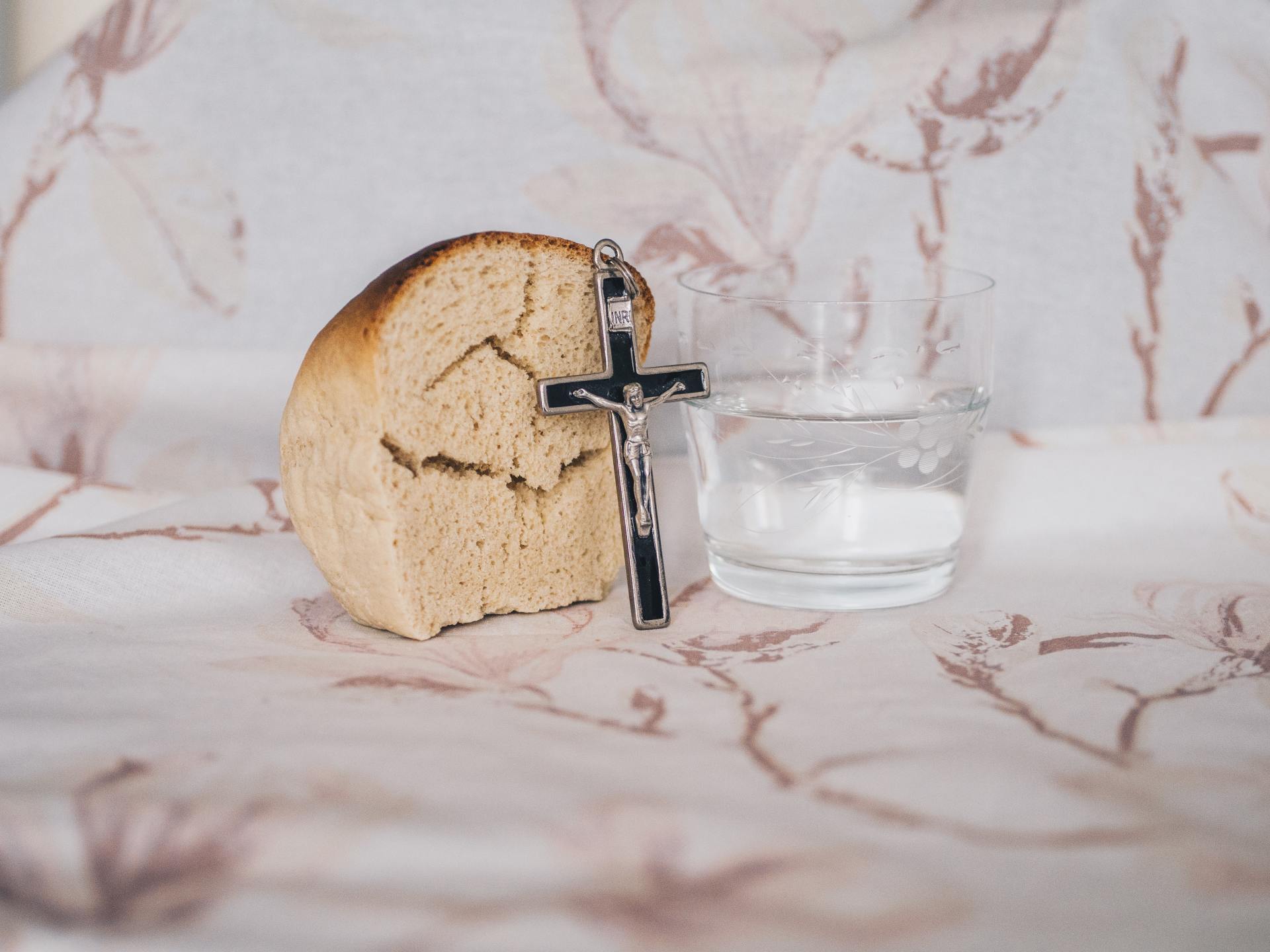
Ash Wednesday is a wonderful feast of the church, the gateway to Lent. Today the Christian Church begins the holy season of Lent, a period of 40 days of preparation for the celebration of the Passion, Death and Resurrection of Christ, the Paschal Mystery, the most solemn moment in the church’s year. Let us pray: Father in Heaven, Protect us in our struggle against evil. As we begin the discipline of Lent, make this season holy by our self-denial… During Ash Wednesday Mass the celebrant makes the sign of the cross on the forehead with ashes. The accompanying words remind us of our mortality and our hope: “Remember that you are dust and unto dust you will return!” and invite us to be better Christians: “Repent and believe in the Gospel!” In Lent we are called: • to engage deeply in this season of prayer, fasting and almsgiving • to read and reflect on God’s word in scripture • to spend more time in prayer • to work on any attitudes or behaviour which may be unchristian • to deny ourselves and to strengthen our will in the battle against selfishness Ash Wednesday itself is a day of special prayer and fasting, abstaining from meat and luxuries in order to mark the beginning of this spiritual journey. During this time of Lent, we take stock of our lives and reflect on our motives and actions. We strive to let God’s love take root in our lives in order to become more like Jesus. Let us pray: As we live through this Ash Wednesday, may the crosses of ashes that mark our foreheads be a reminder to us and to those we meet that we belong to your Son, Jesus. May our worship and prayer and penitence this day be sustained throughout these 40 days of Lent. Bring us refreshed and renewed to the celebration of Christ’s resurrection at Easter. We make this prayer through Christ Our Lord, Amen.
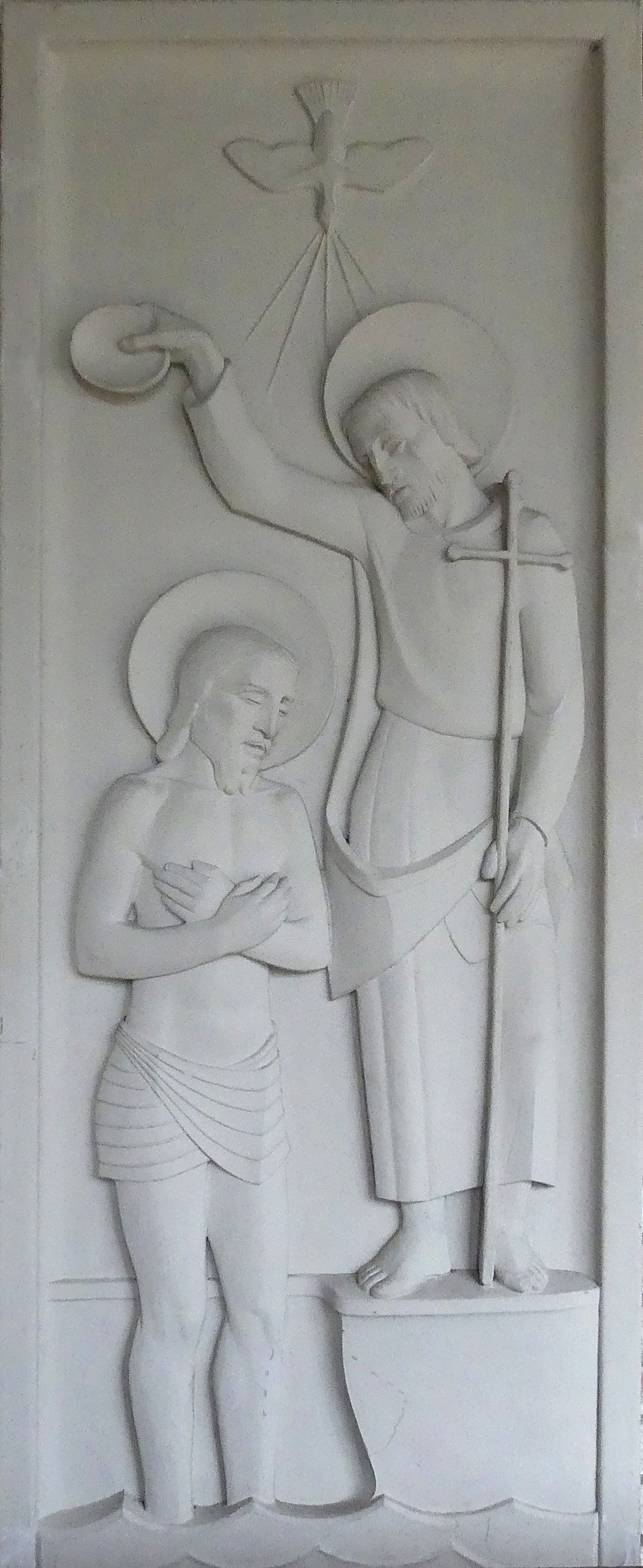
In the Eastern Church the celebration of the Lord's Baptism was of central importance. Epiphany means 'manifestation' - and while the West thought of Christ being manifested to the Gentiles via the Magi, the older Eastern Tradition thought of the Trinitarian manifestation of Christ and his mission to the world in general at the time of his Baptism. The dove (Holy Spirit) rested on him, and the voice of the Father was heard: 'This is my Son, the Beloved, my favour rests on him'. After this, John the Baptist points to him as 'the Lamb of God who takes away the sin of the world' and the first two apostles, Andrew and Philip, spend the day with Him and then start to call others. Also, Christ, coming to Baptism, had no need of being sanctified by the waters: rather, he sanctified the waters, so that they in turn would sanctify all who were baptised in water and the Holy Spirit. The Church recognises that the necessary catechesis on the sacraments is no longer getting across to people in general, and especially with regard to the sacrament of Baptism - by which we are made children of God and members of Christ; sharers in His mission to draw all into the kingdom of God; and, like Him, called to serve, not to be served. Today is an opportunity to think more deeply about our baptismal commitment.
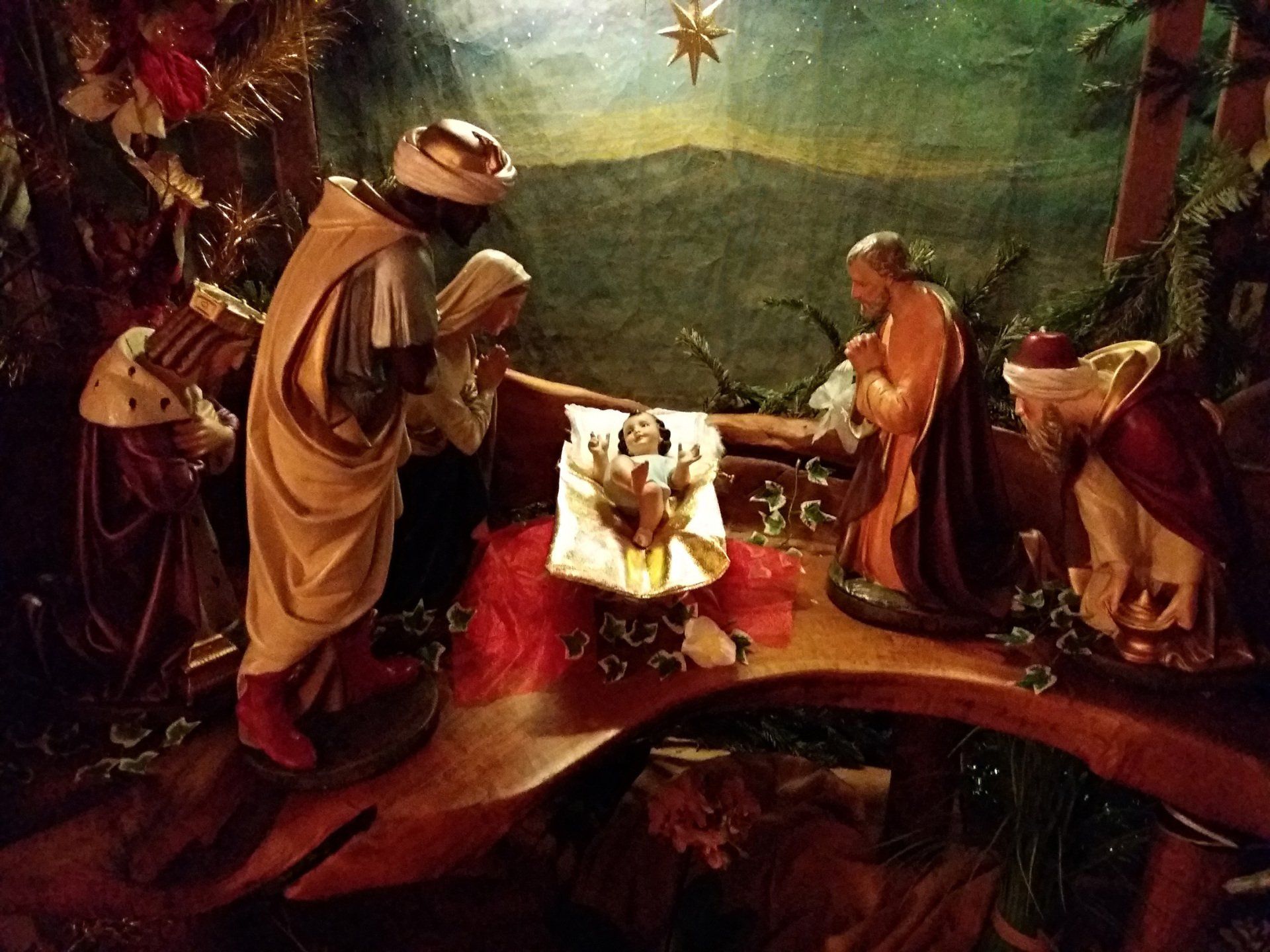
On Christmas night we contemplated the new-born Son of God among the poor. If we imagine our own parents having to shelter overnight in a stable or cow-byre at any time, let alone on the occasion of child-birth, we shudder. Looking at our beautiful Christmas cribs it is easy to forget the reality. And then, those first visitors; shepherds were pretty low on the social scale in Israel. This was a manifestation of God’s special love for the poor. But Jesus came for ALL; not just for the chosen people of Israel, and not just for the materially poor…. (for spiritually, we are all poor).. And the Epiphany gloriously manifests the vast inclusiveness of His outreach. The Gospel speaks of ‘wise men from the east.’ And also of gifts – gold, frankincense and myrrh. Tradition - no doubt inspired by the prophet Isaiah – speaks of kings: e.g. ‘The nations shall come to your light, and kings to your dawning brightness’ (Isaiah 62 v.3, see 1st Reading at Mass). Certainly these men were well off, to provide such gifts, and certainly they were intellectually elite, to be able to spot the Star and understand its significance. Just as God had sent His herald angels to the skies above Bethlehem, so now He has sent His heralding Star to the skies above the foreign lands of the East. And both the poor Israeli shepherds and also the learned eastern sages have responded immediately, enlightened by God’s Holy Spirit. Today it is appropriate to pray for all the nations of the world, that they may share God’s gift of Peace - peace between themselves, and also the deeper Peace that is born of faithfully following God’s guidance and drawing close to Him. It is also a time to pray for missionaries, that they may carry God’s message of Redemption, Love and Hope to the very ends of the earth. Moreover it is a time to pray for all who have not seen or responded to the Light of Christ. and indeed for ourselves, that Christ’s Light may shine through us to those around us.
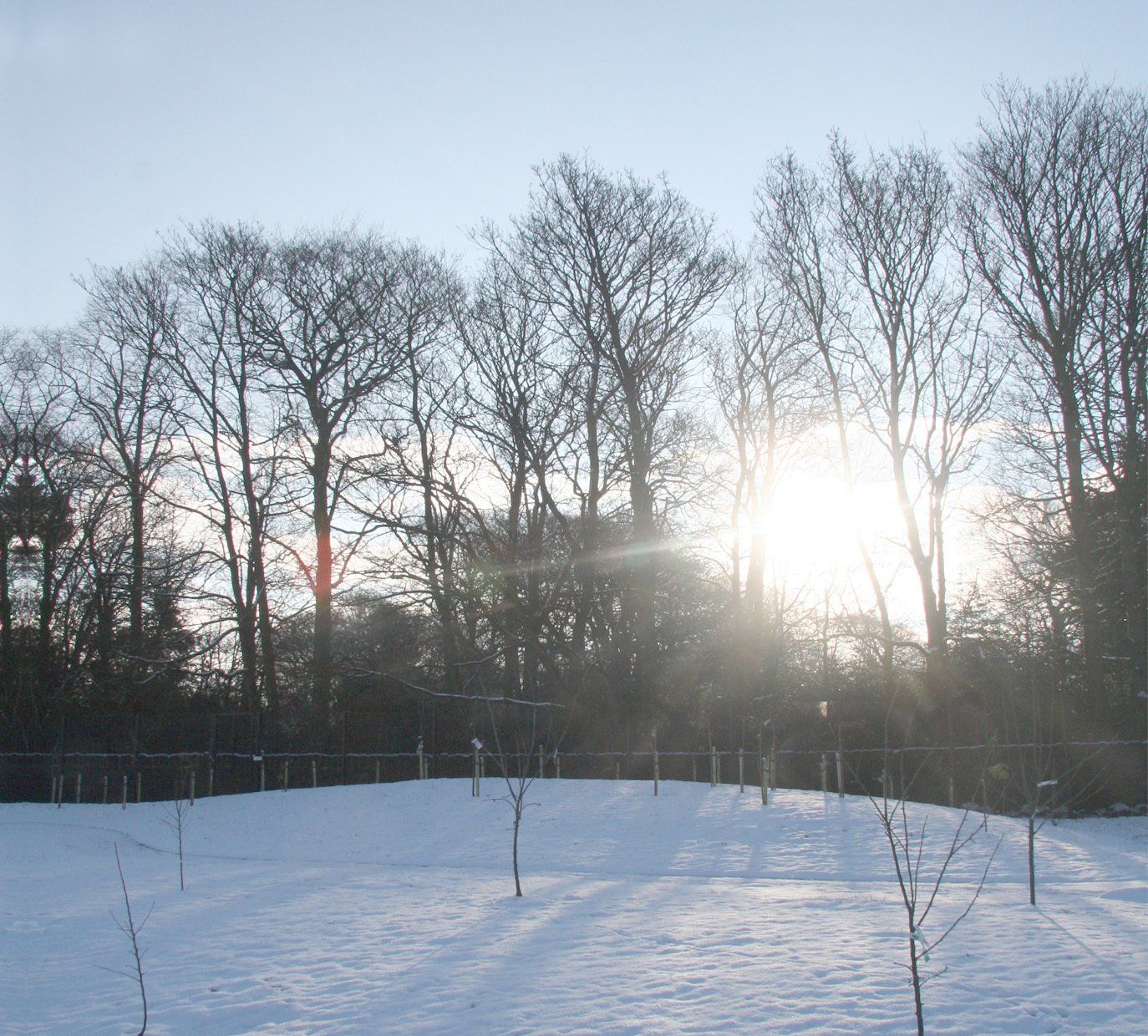
The Mother of God… She is so much a part of our lives, as Catholics. Yet how often do we stop to consider what an almost incredible statement those words represent. We believe in a God who is eternal, infinite, almighty, Creator of heaven and earth. How can such a being possibly have a human mother?? It took the Church several centuries, two Councils, and endless thought, prayer, discernment and discussion (not to mention very heated argument) before Mary was finally acclaimed officially as ‘Theotokos’ = the one who bears God. What is at stake is the very mystery of the Incarnation. What does it mean to say (as St John proclaims at the beginning of his Gospel) that ‘the Word became flesh’? Of course it is beyond our limited understanding; but not beyond our joyful, wondering contemplation. God is LOVE, and love desires union. The main-line theological discourse is that man’s sin could only be redeemed by a man... and a man who had Divine worth by which to repay man’s debt. But there is another approach, expressed by the medieval British theologian, Duns Scotus, that God so loved the world that He would in any case have become one with His creation, even if sin had never occurred. In either case, if the Father were to send his Son to truly assume human nature, God’s Son would have to be born of a human mother, a woman who would be specially prepared by the Holy Spirit, but whose free and fully human acceptance of such a role would be essential. This woman was the young peasant girl from Nazareth, who was prepared to say: ‘Be it done to me according to your word’ – ‘I accept what you are asking of me’. Close to her Son in life and for all eternity, she is also close to us as our fellow human-being, and has always been deeply loved and trusted by generation after generation, the world over. This union between the Infinite and the finite surely expresses PEACE in a powerful way; and today we pray for peace and reconciliation for our whole world. May 2020 be a year that brings the Peace of Christ to each one of us with all our problems, great and small, the Peace of which the angels sang as Mary gave birth to her Child.
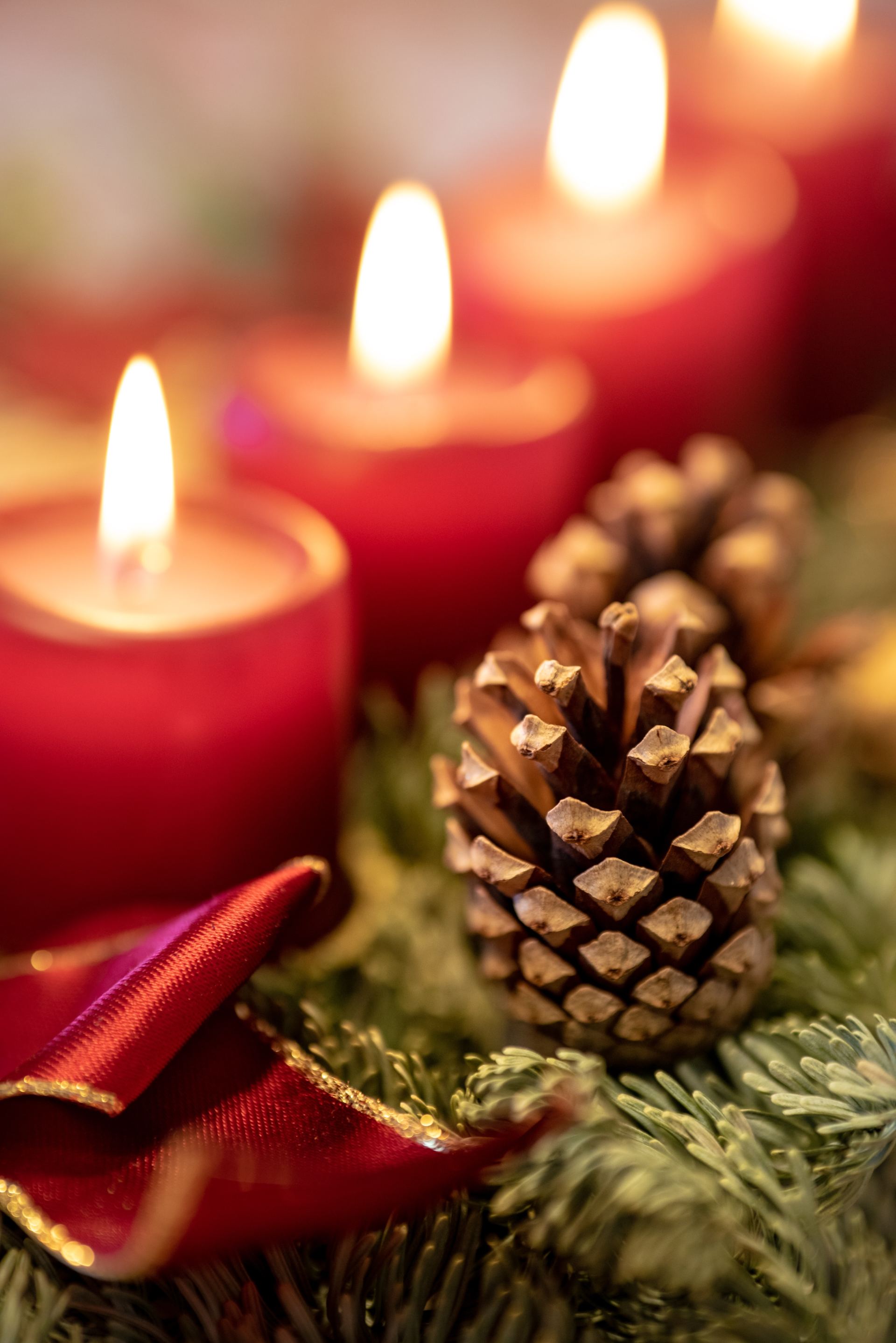
The liturgical season of Christmas is rich in blessings if we take time to reflect on its meaning - the wonderful gift of the Incarnation. Time is, of course, God's immeasurable gift to each one of us. St Paul tells us that, "In the fullness of time, God sent His Son, born of a woman, born a subject of the Law to redeem the subjects of the Law and to enable us to be adopted as sons." So God's Son, the Word, takes on our human condition, divesting Himself of Himself, so to speak - to live within the passage of time, taking on all the limitations of our humanity. Beyond all the joyful celebrations of Christmas and, indeed, the cause of these celebrations is the knowledge that by entering into our world Jesus Christ truly lives in creation, within each one of us , uniting us to Himself. Holiness is becoming more and more aware of this reality and living its fruits of love and peace. Becoming aware of this divine reality within us radically changes our lives. Pope St Leo the Great wrote, many centuries ago, "O Christian, be aware of your nobility - it is God's own nature that you share!" When, by the grace of God, we grow in awareness of what the Incarnation means and experience its radical transformation, we come to realise that the same wonder is taking place in others, in my brother, my sister, whoever and wherever they may be . A very blessed Christmas season to you.
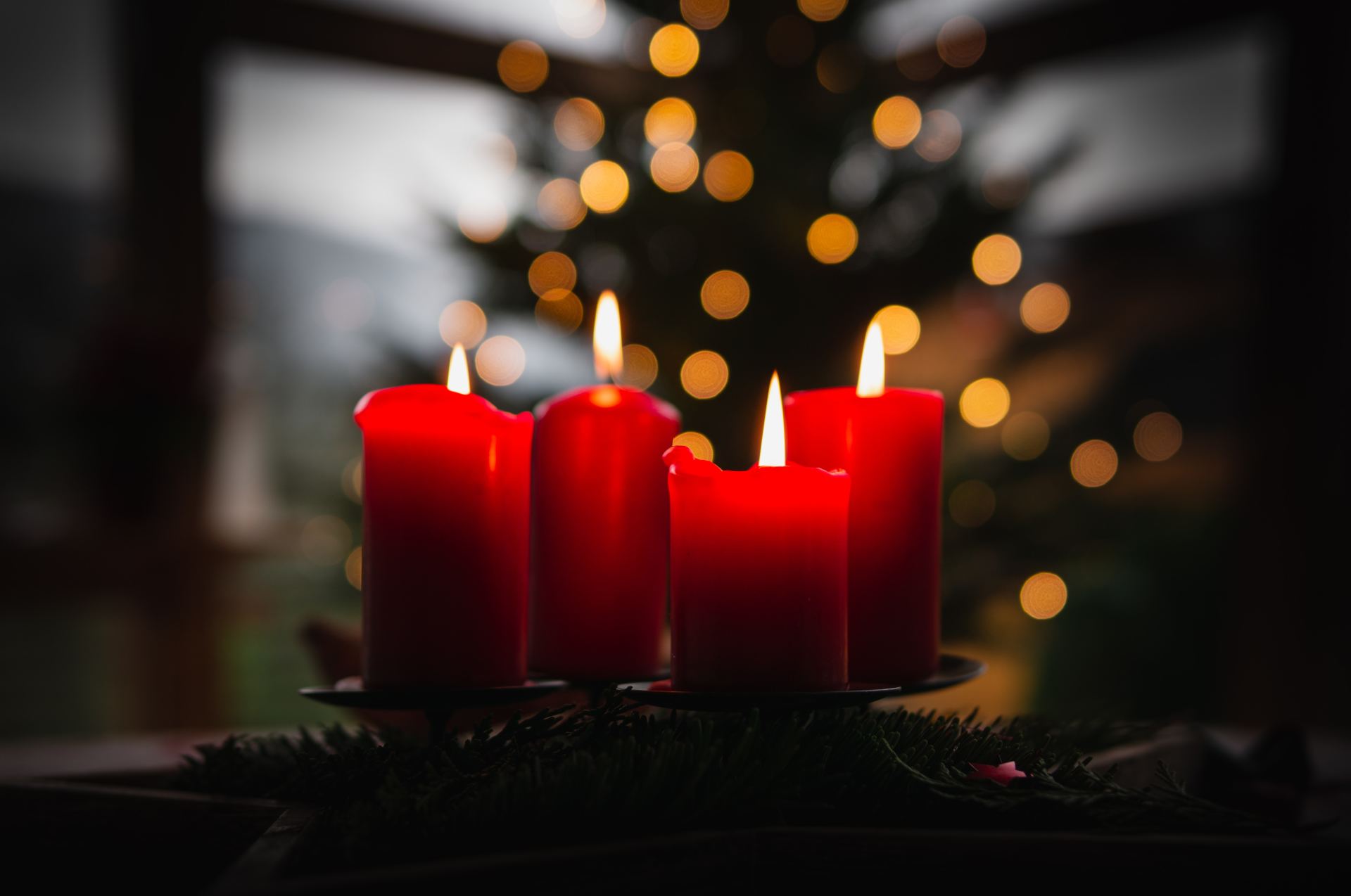
On this last Sunday before Advent, the message rings out: ‘A virgin shall conceive and give birth to a son, and they shall call him EMMANUEL, a name which means “God is with us.” The collect – which we use every time we recite the Angelus – encapsulates the whole Christian mystery: the Incarnation, Passion and Resurrection of the Son of God. The Messiah promised to the descendants of David is now announced as coming to all nations. We stand at the threshold of that incomparable moment when we celebrate the coming of the Word of God into our world, as the tiny Child of Mary who is our Redeemer and the glorious King of all ages and all peoples. And for what do we pray? After receiving the Lord in Holy Communion – He who is to come, and yet He who is already always with us – the Post- Communion prayer asks that we may grow in faith and love. Faith to believe ever more deeply in Who He is; but also to believe that God’s providence is always very much at work in our lives. Both the good things, but also the seemingly bad things, are part of His plan; and we need to be deeply convinced that ‘all things work together for good, for those who love God.’ He can write straight with crooked lines, as the saying goes. Even our little daily frustrations, accepted with love, can be united with His Cross and so become small but powerful contributions to the up-building of His Kingdom. We know from the Gospel that He can do wonders with a few loaves and fish, and that the Kingdom of Heaven is like a mustard seed which grows into a huge tree. It is only love which can enable us to make use of these little daily opportunities – as well as the much larger crosses that some are called to bear. And as we look out across our world, let us entrust all its confusion and chaos to the loving and all-powerful Heart of the One who is our King but also our dearest Friend. And let us joyfully renew our self-offering and unite it with His own, as He ‘lowers the Heavens and comes down.’
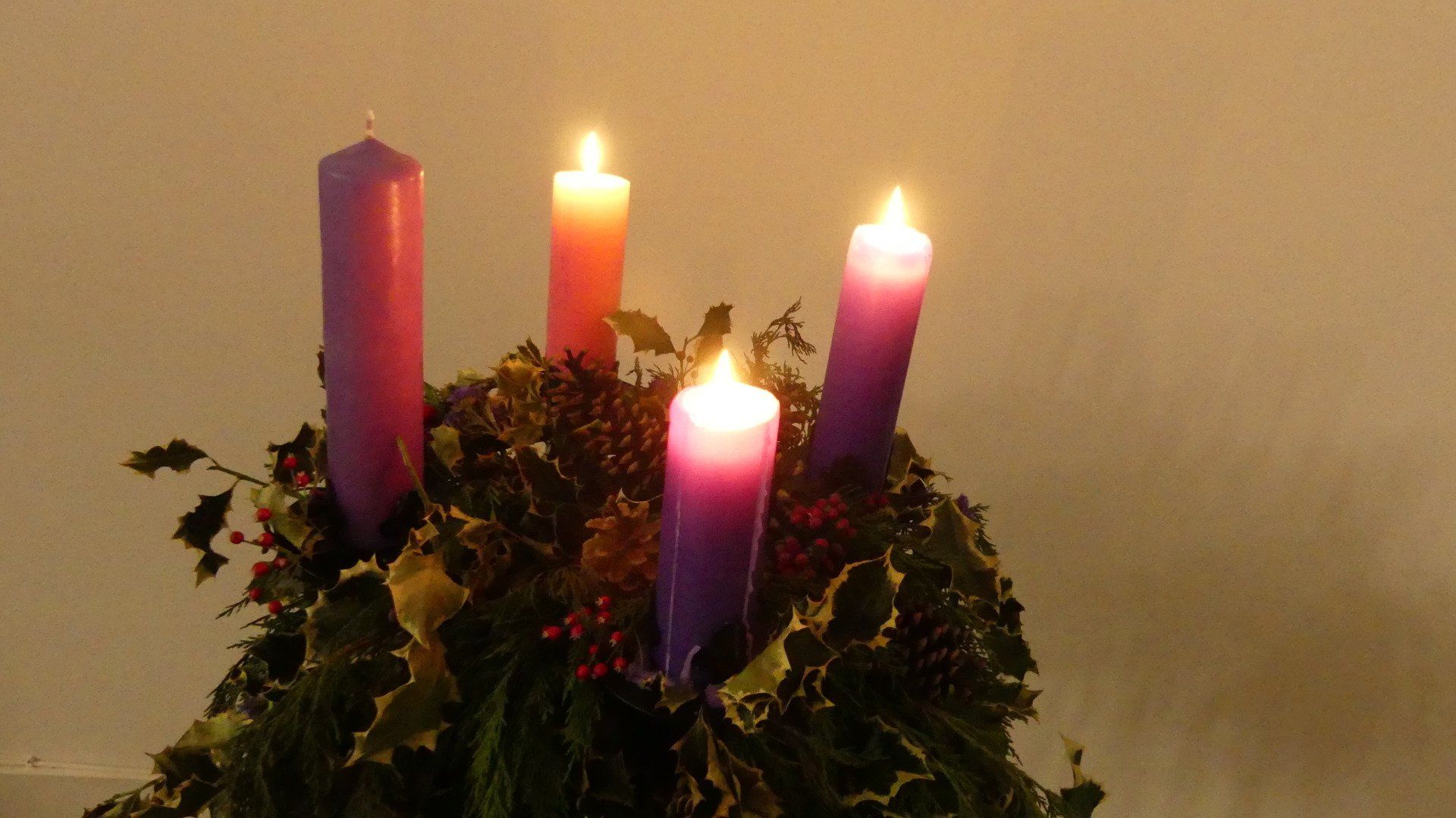
Be joyful, my soul, for there is someone who loves your God as He deserves. Be joyful, for there is someone who knows His goodness and value. Give thanks to Him, for He has given us on earth someone who thus knows Him as His only Son. Under this protection you can approach and petition Him for then His Majesty takes delight in you. Don’t let any earthly thing be enough to separate you from your delight, and rejoice in the grandeur of God; in how He deserves to be loved and praised; that He helps you to play some small role in the blessing of His name; and that you can truthfully say: ‘My soul magnifies the Lord’. St Teresa of Avila
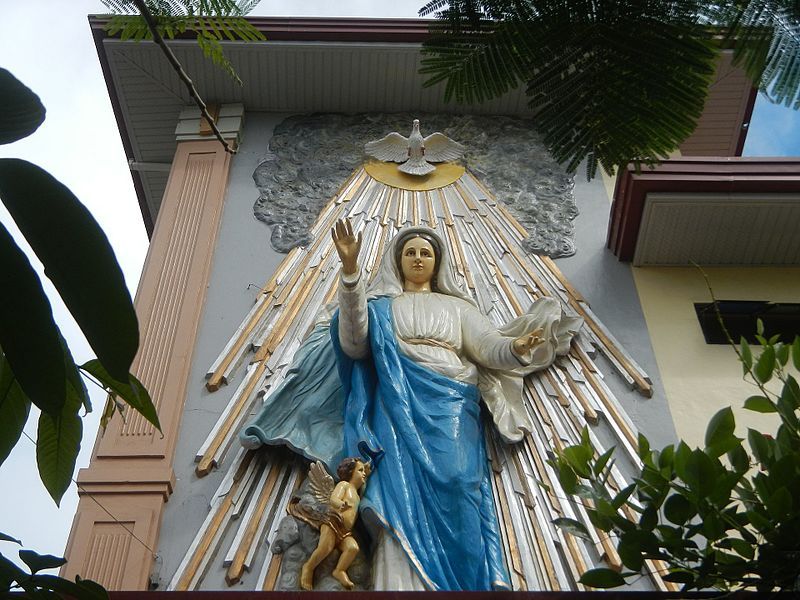
Many of the Church Fathers called Mary the second Eve, and thought of the angel’s Ave as a reversal of Eva. Eve had brought the sentence of death on all her children; but Mary, by her acceptance of God’s plan, brought into the world Christ, the true Son of God and our Redeemer. The Vatican Council has this to say: ‘The Father of mercies willed that the consent of the pre-destined mother should precede the Incarnation, so that just as a woman contributed to death, so also a woman should contribute to life. This contrast was verified in outstanding fashion by the Mother of Jesus. She gave to the world the very life which renews all things, and she was enriched by God with gifts befitting such a role. ‘It is no wonder, then, that the usage prevailed among the holy Fathers whereby they called the Mother of God entirely holy and free from all stain of sin…Adorned from the first instant of her conception with the splendours of an entirely unique holiness, the Virgin of Nazareth is, at God’s command, greeted by the angel messenger as “full of grace” (cf Luke 1:28). To the heavenly messenger she replies: “Behold the handmaid of the Lord; be it done to me according to thy word.” (Luke 1:38)’ …’Therefore the holy Fathers see her as used by God not merely in a passive way but as co-operating in the work of human salvation by free faith and obedience.’ (LG 56) Mary’s Immaculate Conception - whereby, from the first moment of her conception she was freed from all stain of original sin and filled with grace, by the merits of her Son and our Saviour – was declared a doctrine of the Catholic Church by Pope Pius IX in 1854. Three years later a little French peasant girl saw a beautiful lady in the grotto of Massabielle, at the foot of the Pyrenees at Lourdes. The Lady spoke In the local dialect, and when Bernadette asked her name she replied: ‘I am the Immaculate Conception.’. Since then Lourdes has become a pilgrimage centre that draws millions of visitors every year. There are sometimes healing miracles, like those recounted in the Gospels; loving service to the sick is joyfully carried out by so many, especially the young, and spiritual light and joy are evident. It is a place where (as one young pilgrim put it) ‘strangers become family.’ In a word, it is a place where Mary’s influence manifests Christ’s Church is in ‘the beauty of holiness.’
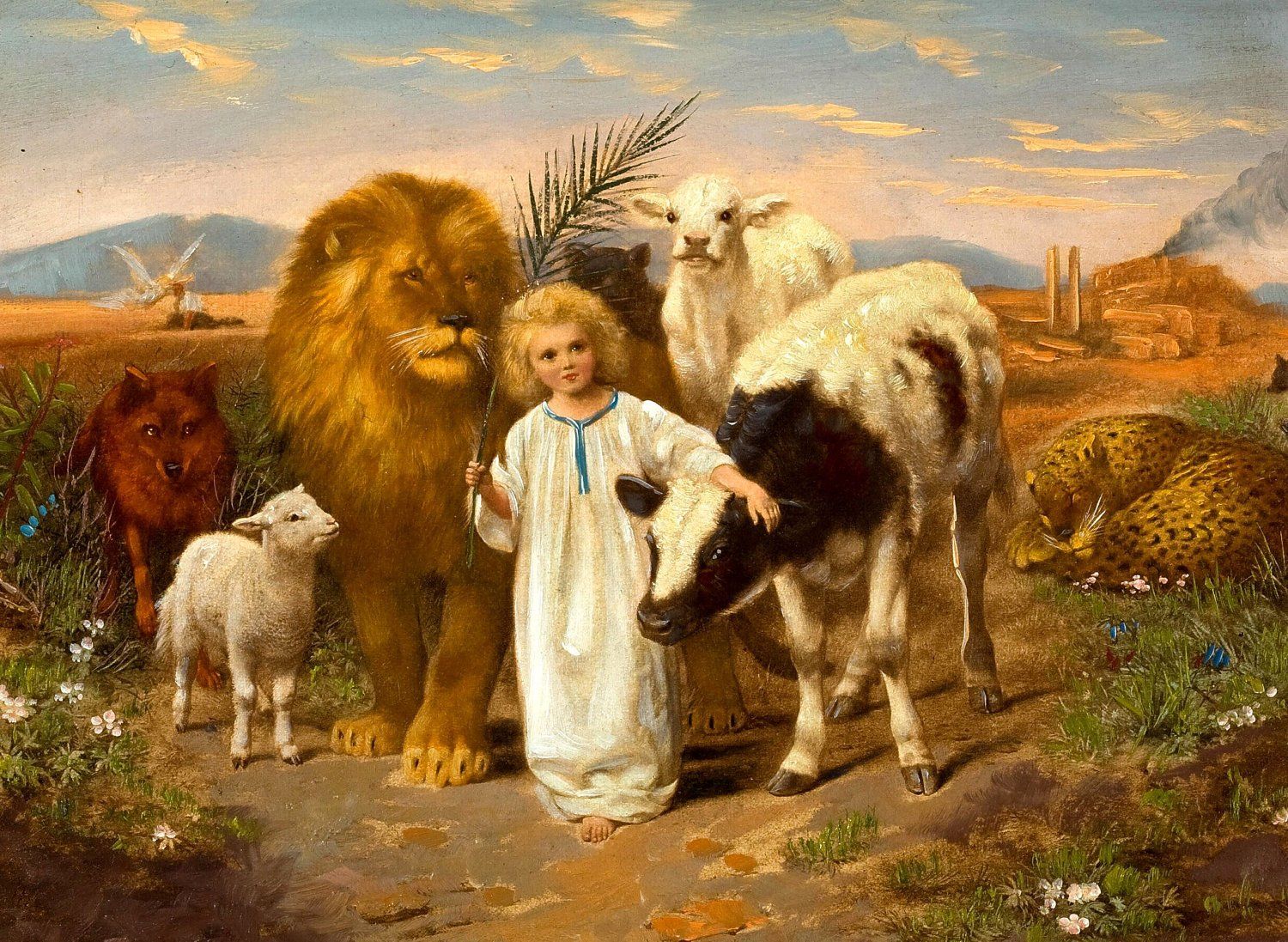
As we reflect each Advent on the coming of the Word of God into our world, sharing our humanity for love of us, it is fitting that we reflect on this same Word, presented to us in the scripture readings of the Church's liturgy. The readings for the second Sunday of Advent present us with some strong challenges. In the Gospel we are introduced to one of the key figures of the Advent liturgy, John the Baptist. Known as the forerunner of Christ who prepared for his mission in the desert by prayer and austerity of life, he thunders out his message by calling on us to repent. ‘Transform your lives’ he said, ‘turn yourselves inside out, become thoroughly other than you are, because the reign of God is here. Radically change your lives, your attitudes, your behaviour, show by the way you live that you put God first. Just because you are the children of Abraham does not guarantee your salvation. "God can raise up children of Abraham from these very stones." John's call to repentance is highly relevant. Unless there is a constant review of our life we can easily grow complacent. In the first reading Isaiah speaks of God's Holy One on whom the Spirit of God rests, "a spirit of wisdom and insight, a spirit of counsel and power, a spirit of knowledge and of fear of the Lord." God's Holy One, Christ, brings the irreconcilables together symbolised by the 'wolf' living with the 'lamb' and the 'calf and the lion' feeding together, surely one the most powerfully gentle images in the Bible. If we want to love God and want to follow him, we are left under no delusion that we too must work for the irreconcilables, for the reign of God is a reign of Justice, Love and Peace. St Paul completes the picture in the second reading by urging us to be tolerant with one another "following the example of Our Lord Jesus Christ so that united in mind and voice we may give glory to the God and Father of Our Lord Jesus Christ." Advent demands of us the total conversion of our lives. COME, LORD JESUS, COME